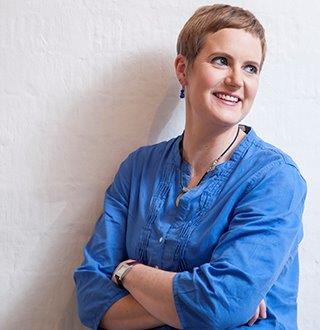Latest News Archive
Please select Category, Year, and then Month to display items
04 April 2024
|
Story Lunga Luthuli
|
Photo SUPPLIED
 Dr Juliet Kamwendo champions gender-inclusive climate action in Africa. Her expertise at the recently held AFR100 workshop highlighted vital steps towards sustainable and equitable development.
Dr Juliet Kamwendo champions gender-inclusive climate action in Africa. Her expertise at the recently held AFR100 workshop highlighted vital steps towards sustainable and equitable development.
Dr Juliet Kamwendo, Lecturer and Programme Director for Gender Studies in the Centre for Gender and Africa Studies at the University of the Free State, is spearheading efforts to integrate gender considerations into Africa's climate restoration agenda. Reflecting on her involvement, Dr Kamwendo stated, "This is particularly crucial, as women make up almost 50% of the population in Africa, and the depletion and degradation of land affect them disproportionately."
She recently served as a gender expert at the AUDA-NEPAD AFR100 workshop in Ouagadougou, Burkina Faso, from 25 to 29 March 2024. This initiative aims to restore forests and degraded land across Africa by 2030, with a focus on gender equality.
The workshop emphasised the integration of gender perspectives into the AFR100 project, acknowledging the disproportionate impact of land degradation on women. Dr Kamwendo's expertise highlighted the need to empower women in climate change interventions, addressing existing gender inequalities exacerbated by environmental degradation.
“Women – who are primarily responsible for household food security and water provision – bear the brunt of environmental degradation, leading to increased workloads, reduced income opportunities, and heightened vulnerability to climate-related disasters. Furthermore, the loss of forest cover and biodiversity further exacerbates the challenges faced by women, particularly in rural areas where they depend heavily on natural resources for their livelihoods,” added Dr Kamwendo.
Her participation highlights academia's crucial role in fostering inclusive and sustainable development, emphasising interdisciplinary collaboration to tackle complex environmental challenges. Through initiatives such as AFR100, stakeholders are working towards a more resilient and gender-responsive future for Africa.
#Women'sMonth: PSP provides scholarly support system for Prof Wilson-Strydom
2017-08-17

Prof Merridy Wilson-Strydom loves asking questions and
therefore has a strong focus on research.
She also enjoys supervising PhD students.
Photo: Sonia Small
Publishing her first book and receiving a rating from the National Research Foundation (NRF) are career highlights for Prof Merridy Wilson-Strydom. As an emerging scholar, the Prestige Scholars Programme (PSP) of the University of the Free State (UFS) played an important role in reaching these goals.
According to the Associate Professor in the Centre for Research on Higher Education and Development, the PSP provided an important scholarly support system, both through the coordinators and the other researchers who are part of the programme.
Writing retreats made book possible
“I found the support and advice provided during the process of applying for funding and rating really helpful,” she says about receiving a NRF C2 rating, based on her work over the past eight years.
She compliments the PSP writing retreats, which “provided a wonderful space for writing and it was during the writing retreats that I did a lot of the writing for my book that was published by Routledge in 2015.” Her book, University Access and Success: Capabilities, Diversity and Social Justice, moving back into academia from institutional research, working closely with undergraduate students as research participants, and postgraduate supervision, are all highlights of her work.
Her book makes a valuable contribution to higher education literature related to access and transition to universities. But, contrary to the mainstream approaches to access which rely on school performance and admissions tests, she poses the issue of social justice at the centre of the analysis.
Student project produces E-book
Another project headed by her and funded by the NRF Thuthuka Programme, was a study to understand the lives of 40 undergraduate students (on the UFS Bloemfontein Campus) who attended township high schools. The study had a particular focus on identifying institutional practices that either enable or constrain students’ capabilities for success in undergraduate study.
One of the outputs was the writing of an E-book called In our own words: Perspectives on being a student. It was written by 30 undergraduate students and the purpose was to provide a platform for students to tell their own stories about life as a student.